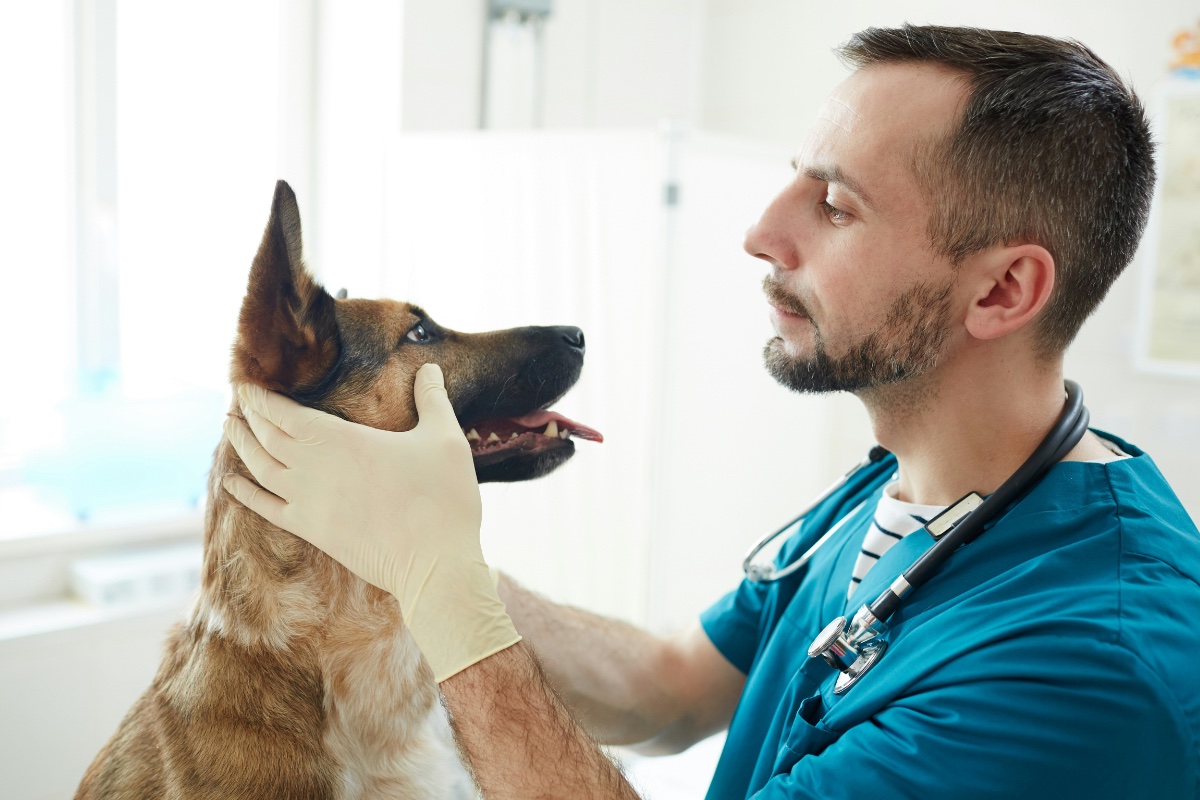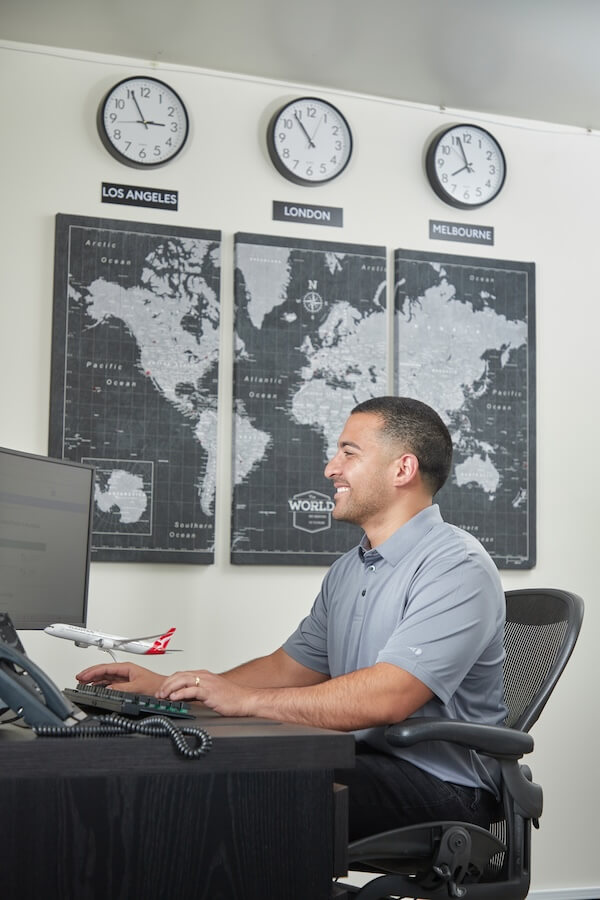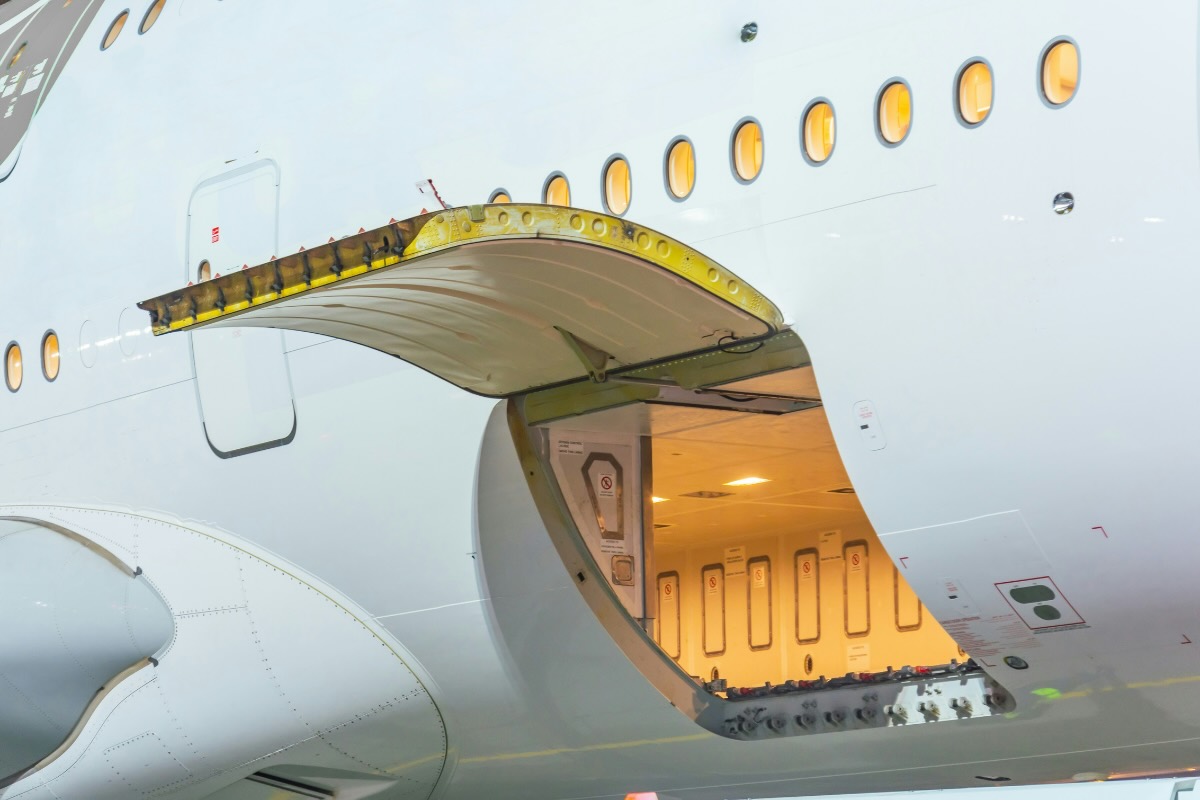
Bringing your pet to Samoa? We’ve handled various pet exports to Samoa — let us help with yours.
Traveling to Samoa (not American Samoa!) with your pet can get complicated, and information on how to do so isn’t as readily available as it is for other international destinations.
Our guide details every piece of the process to ensure a safe, efficient trip for your pet, including when calling in the pet shipping experts may help ease some of those planning worries.
Eligible Pets and Country Restrictions
Samoa doesn’t have any active breed bans for domestic pets, but your cat or dog may be subject to restrictions set by the airline and layover countries. Pet imports are limited to a short list of countries that are either rabies-free or at low risk for rabies.
Eligible Pets
Samoa does not have specific breed restrictions for relocating pets, but the airline you choose for your pet’s trip might.
For travel on Fiji Airways, the most likely carrier to Samoa, your pet must be at least 6 months old. Pets are not allowed in the cabin unless they’re service animals. (Travel in cargo is our preferred mode for pets, as it often means fewer connections and safer routes.)
If your dog is a snub-nosed breed, they’ll need to fly in a crate one size larger than is normally required. You’ll want to discuss your pet’s breed as part of your air travel booking on Fiji Airways or their cargo arm.
Your pet may also be subject to breed restrictions during layovers. The big one here is Fiji. Fiji has a ban on the following breeds, even in transit:
- Dogo Argentino
- Fila Brasileiro
- Japanese tosa
- Pit bull terriers, including American pit bull terriers
- Mixed or cross-breeds of any of the above
Fiji also bans serval cats, which includes Savannah cats, a hybrid of a serval cat and a domestic cat. Breed information should appear on relevant import permits, including transit permits through Fiji, and match across all of your pet’s documents.
Approved Countries
Pets may only enter Samoa from the following countries: American Samoa, Australia, Fiji, New Zealand, and the United States. These are all countries considered either rabies-free or at low risk of rabies.
Pets coming from other countries may still apply for an import permit, but it’s up to Samoan officials to approve or deny entry. In case of a denial, your pet may need to show at least 6 months of uninterrupted time in one of the countries listed above before import permit approval.
Planning an international flight for your pet? We can help.
Microchip and Vaccinations
Samoa is considered a rabies-free country, so all cats and dogs with Samoa as their destination country should be microchipped and vaccinated for rabies.
Microchip
Cats and dogs should be microchipped with either an AVID or ISO-compliant pet microchip before travel. At Tailwind, we always recommend ISO-compatible microchips to avoid any issues with chip readers during the import process.
Your vet can help you ensure that your pet’s microchip is easily readable by international scanners to prevent complications at customs clearance.
Vaccinations
Pets entering Samoa from the United States must be vaccinated against rabies at least 6 months and no more than 12 months before export. Pets coming from countries like Australia and New Zealand that are recognized as rabies-free may not require rabies vaccination for entry.
The Ministry of Agriculture and Fisheries (MAF) can confirm if a rabies vaccination is necessary for your pet as part of the import permit process. (You will need to show that you’re arriving from a rabies-free origin point as part of that application.)
Pets coming from countries not on the shortlist of rabies-free or low-risk countries need to show 6 months of a consecutive stay in one of those countries before shipment.
Dogs should also be vaccinated against canine distemper, canine infectious hepatitis, canine parvovirus, and leptospirosis. Cats should be vaccinated against feline infectious enteritis (FIE), a disease caused by feline parvovirus (FPV). Talk to your vet about additional recommendations they may have for vaccines based on your pet’s health history.

Blood Tests and Treatments
Dogs arriving in Samoa from the United States must do so with a rabies antibody test to show sufficient protection against rabies. Pets arriving from rabies-free countries like New Zealand may not be subject to titers, but requirements can change ahead of your pet’s travel. It’s always best to start with the MAF on current restrictions and requirements.Titer tests should happen no less than 3 months and no more than 12 months before export. If pets arrive in Samoa with titer tests still pending, they’ll be held in quarantine for up to 3 weeks until results are received. The results of your pet’s titer must be greater than or equal to 0.5 IU/ml.
Dogs arriving in Samoa also need the following:
- Within 21 days of export, dogs must be treated with a medication effective against tapeworms (e.g. Praziquantel).
- Within 4 days of export, dogs must be treated with a medication effective against intestinal roundworms (e.g. Pyrantel pamoate).
- Within 4 days of export, dogs must treated with a product effective against ticks, fleas, and lice.
All pets must be treated agCats arriving in Samoa should receive parasite treatments effective against intestinal parasites and an insecticide treatment for ticks and lice within 4 days of export.
All pets are subject to an additional visual inspection upon arrival. Any sign of infectious or contagious disease or contaminants in their travel kennel or bedding could result in quarantine or denied entry.
Import Documents
All pets planning to travel to Samoa must apply for an import permit first. These are issued by the Samoan government through the Samoa Trade Portal. You’ll need your proposed travel date, port of entry, and your pet’s identifying information to fill this out.
Traveling pets also need a health certificate issued by a licensed veterinarian in the country in which they originated. For pets traveling from the United States, certificates are endorsed by the U.S. Department of Agriculture (USDA) within 48 hours of travel to Samoa.
As there is no model health certificate available for pet travel to Samoa, we use APHIS Form 7001 at Tailwind. The form includes everything Samoan officials need to approve entry into the country, including microchip information, vaccination history, and other relevant treatments.
That final exam before export should confirm no clinical signs of rabies or other infectious diseases. It should also confirm that your pet is healthy enough for air transport.
This is important for older pets, especially those with health issues. Older pets can fly, but it’s extra important that your vet assesses their fitness for travel. Professional pet movers can offer some guidance on relocating older pets.


Airline Information
While there are several airlines that fly to Samoa, many come with multiple connections. The best option for pets is Fiji Airways. Itineraries from LAX in Los Angeles generally involve a short layover in Nadi, Fiji, followed by a flight from there to Faleolo International Airport in Samoa.
You will need a transit permit to bring your dog through Fiji, even for just a few hours. (We already noted that Fiji’s breed bans are in effect, even for transiting pets.) Our pet transportation services experts handle this piece for our clients so that pets have no trouble making their connection.
All pets flying on Fiji Airways do so as cargo, so they’ll need an IATA-compliant crate. IATA-compliant crates are rigid, well-ventilated, and escape-proof.
Crates should be large enough to accommodate your pet’s size. Your pet will likely need to show that they can stand, turn, and lie down comfortably at check-in. We’ve mentioned this already, but snub-nosed breeds will need to size up on crates to accommodate potential breathing issues.
If you think you may need a reinforced crate, we provide custom-built CR82 crates for breeds that may benefit from one. Just check with the airline first. Breed restrictions may apply, especially on layovers in Fiji.
Quarantine
There is no quarantine requirement for pets arriving in Samoa unless there is a delay in information needed for a speedy arrival. That includes pending rabies titer results. Any visible infections or signs of illness could also delay pick-up.
How Tailwind Can Help
At Tailwind, we’re here for your pets door-to-door, especially when you’re dealing with a complex itinerary to an international destination like Samoa. The goal is peace of mind for stress-free travel or pet relocations.
We’ve worked with pet owners around the world. If you’re planning travel elsewhere, even domestically, we can help you and your pet get there safely and efficiently. Your pet’s well-being is our top priority.

Ready to get started? Each situation is a little different, so contact us to get an idea of the costs involved.
See What Our Clients Have to Say

“We contacted 10 different pet shipping companies in search of someone who could help us ship our two cats Socks and Mouse from the USA to Apia, Samoa (not American Samoa). We finally found Tailwind Global Pet, who were more than happy to help us, despite not having shipped pets to Samoa before. Brady from TGP researched the shipping and veterinary requirements and was responsive to all of our questions plus the quotation was very reasonable and realistic – we did not feel like we were being taken advantage of at all. Our cats arrived calm and relaxed, encountered no problems on their long journey from Washington DC to Apia and were cleared by customs in Apia with no issues (because all the paperwork was in order). I would highly recommend Tailwind Global Pet if you are moving to the Pacific and need a pet shipping company that’s not afraid to do something new!”
– Jarrad Scott

“I was so nervous to ship my fur babies overseas, but our airline recommended Tailwind Global Pet. From our first phone call with Brady, we felt comfortable with our decision because of his knowledge and professionalism. He confidently answered every question through many years of experience. Tailwind handled everything from the veterinary exams to the USDA certificate. Most importantly, our dogs arrived at our door happy and in great shape. I will definitely use their services again and I highly recommend to anyone that needs to ship their pets.”
– Jamie Graves
